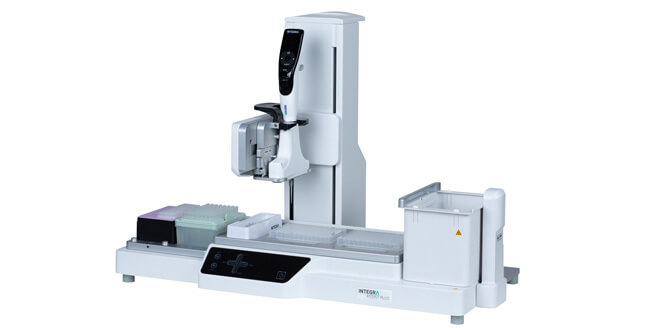
Next generation sequencing (NGS) is used for DNA and RNA sequencing in basic, applied and clinical research, as well as diagnostics. NGS was originally called ‘massively parallel sequencing’, referring to its capacity to analyze millions of sequencing reactions at the same time. At the start of the NGS workflow, libraries of similarly sized DNA fragments are created. Normalization of these DNA libraries is then performed, as differences in the concentrations of fragments affect the sequencing results, leading to under- or over-representation of individual fragments.
Normalization of nucleic acid concentrations – the equalization of sample concentrations – essentially involves dilution of the sample with varying volumes of diluent. Manual normalization is error-prone and tedious and requires cumbersome calculations and constant focus to ensure accurate sample tracking. The ASSIST PLUS pipetting robot can be paired with the D-ONE single channel pipetting module to provide an easy automated solution for library normalization, ensuring error-free dilution calculations, consistent pipetting steps and precise liquid handling.





